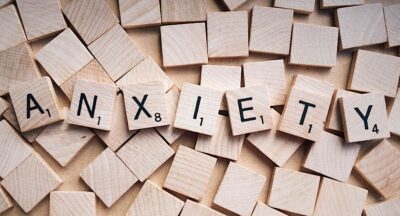
The many ugly faces of depression: What should you expect when experiencing Anhedonia and the many symptoms, causes and treatment that are available when dealing with it.

Anhedonia is closely associated with depression and is often considered a fundamental symptom of this mental health condition. It involves a diminished ability to find pleasure or interest in activities that were once enjoyable. Anhedonia can manifest as either a lack of interest or a reduced capacity to experience positive emotions.
In the context of depression, anhedonia serves as a significant indicator and contributes to the overall impact of the disorder. Depression is a complex mental health issue characterized by persistent feelings of sadness, hopelessness, and a lack of interest or pleasure in various activities.
The presence of anhedonia can lead to functional impairment in different aspects of life, affecting social relationships, work, and overall quality of life. It also influences motivation, making it difficult for individuals to initiate and sustain activities that could bring joy or satisfaction.
While anhedonia is closely linked to depression, it can affect individuals without them being explicitly depressed or feeling sad. It is also associated with other mental illnesses like schizophrenia and bipolar disorder. Scientists suggest that changes in brain activity, particularly in the production or response to dopamine, a “feel-good” mood chemical, may be related to anhedonia. Research indicates that dopamine neurons in the prefrontal cortex may be overactive in people with anhedonia, interfering with pathways that control how rewards are sought and experienced.
It’s crucial to recognize that anhedonia is just one facet of depression, and individuals with depression may experience a range of symptoms, including changes in sleep patterns, appetite disturbances, feelings of worthlessness, fatigue, and difficulty concentrating.
Treatment for depression typically involves a combination of psychotherapy, medication, and lifestyle adjustments. Addressing anhedonia is often a key component of treatment to help individuals regain the capacity to experience pleasure and engage in meaningful activities. Seeking professional help from a mental health provider is essential for an accurate diagnosis and appropriate treatment.
Researchers are exploring new treatments for people with anhedonia who do not respond to standard treatments like SSRIs and talk therapy. One promising option is ketamine, a medication with known antidepressant effects. More research is needed as to what medication works best so I wouldn’t go and ingest a bunch of ecstasy when being diagnosed with Anhedonia. It is important to thoroughly research the topic and get the proper health from medical experts.

dr.dan
Related Posts
The Holistic Approach to Depression: 7 Practical Steps to Boost Daily Motivation and Prevent Its Onset! Medication NOT included into the mix.
Depression is a complex and deeply personal experience that can affect anyone,...
The many ugly faces of depression: What should you expect when experiencing Anhedonia and the many symptoms, causes and treatment that are available when dealing with it.
Anhedonia is closely associated with depression and is often considered a...
The Unseen Struggles of Anxiety: Understanding Intrusive Thoughts and How to Overcome Them
Anxiety is a common mental health condition that affects millions of people...
Avoiding these narcissistic parenting styles or your children may follow similar narcissistic behaviors. Some hope in sight.
To prevent your children from adopting narcissistic behaviors, it is crucial...




